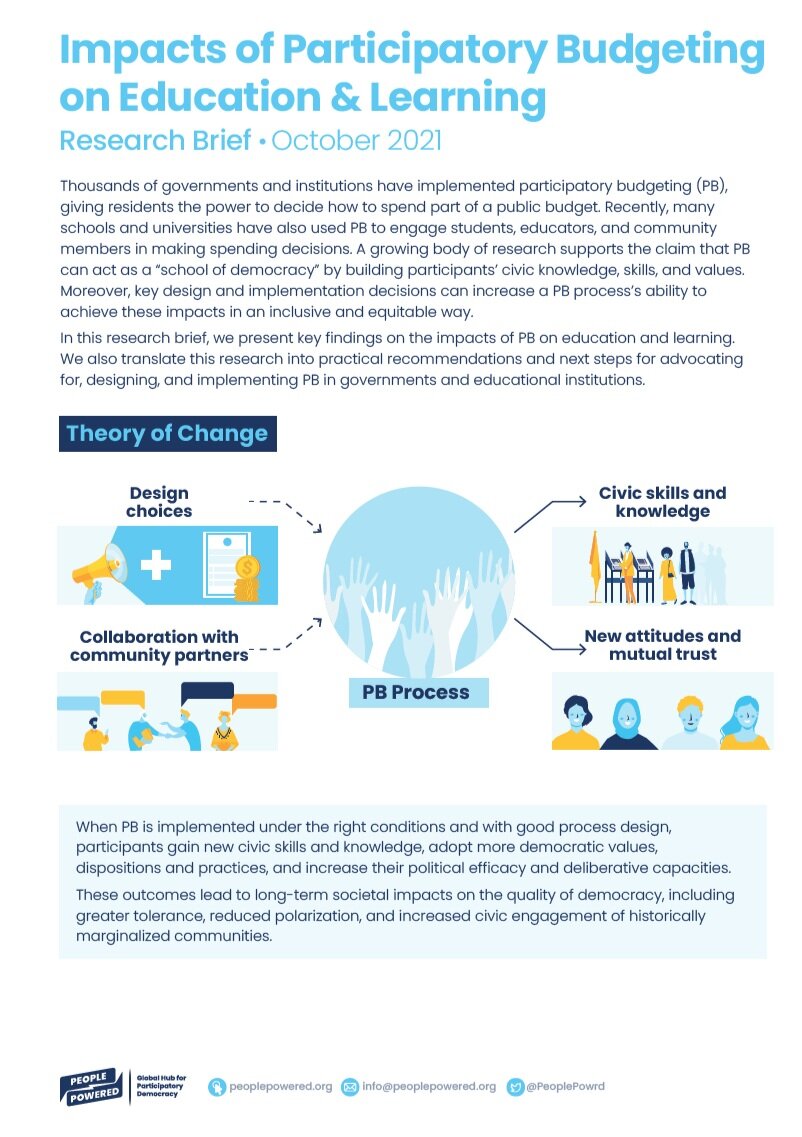Impacts of Participatory Budgeting: Education & Learning
/Thousands of governments and institutions have implemented participatory budgeting (PB), giving residents the power to decide how to spend part of a public budget. Recently, many schools and universities have also used PB to engage students, educators, and community members in making spending decisions. A growing body of research supports the claim that PB can act as a “school of democracy” by building participants’ civic knowledge, skills, and values.
Moreover, key design and implementation decisions can increase a PB process’s ability to achieve these impacts in an inclusive and equitable way.
In this research brief, we present key findings on the impacts of PB on education and learning.
We also translate this research into practical recommendations and next steps for advocating for, designing, and implementing PB in governments and educational institutions.
Also, you can check the online course where leading researchers share key findings on the impacts of PB on education and learning, explaining how it can build participants’ civic skills, empower students and teachers beyond the classroom, strengthen community cohesion, and more. Practitioners who have implemented PB in schools, universities, and cities will help translate this research into practical recommendations and next steps for your work.
The research brief is available in English, Spanish, Portuguese, French, Russian and Chinese.
Year of publication: 2021




